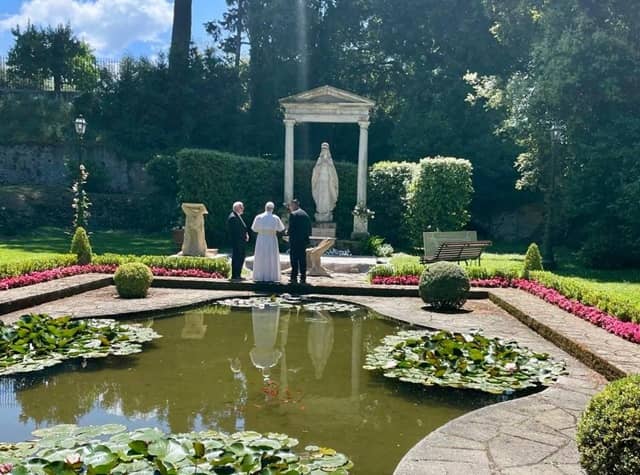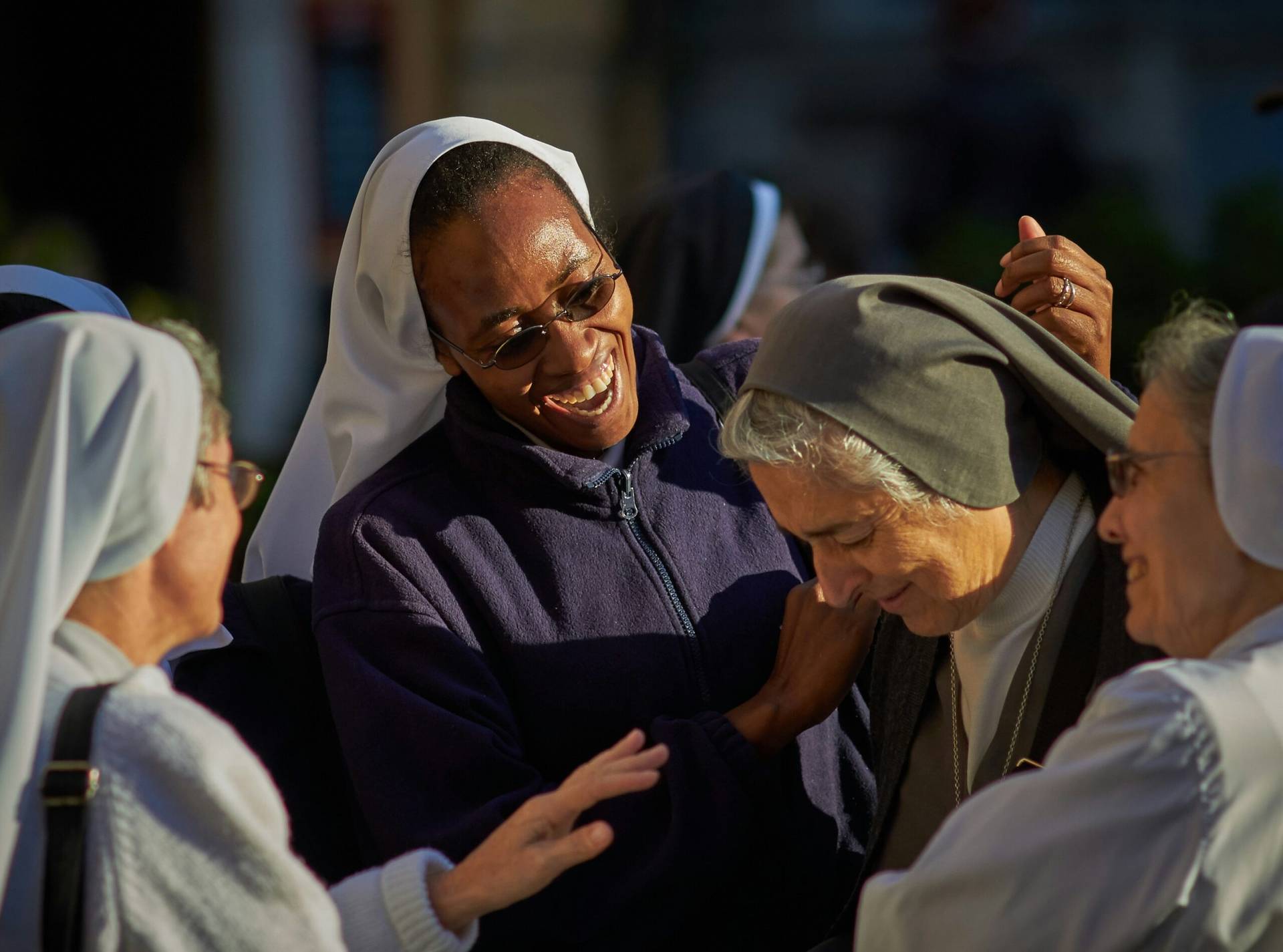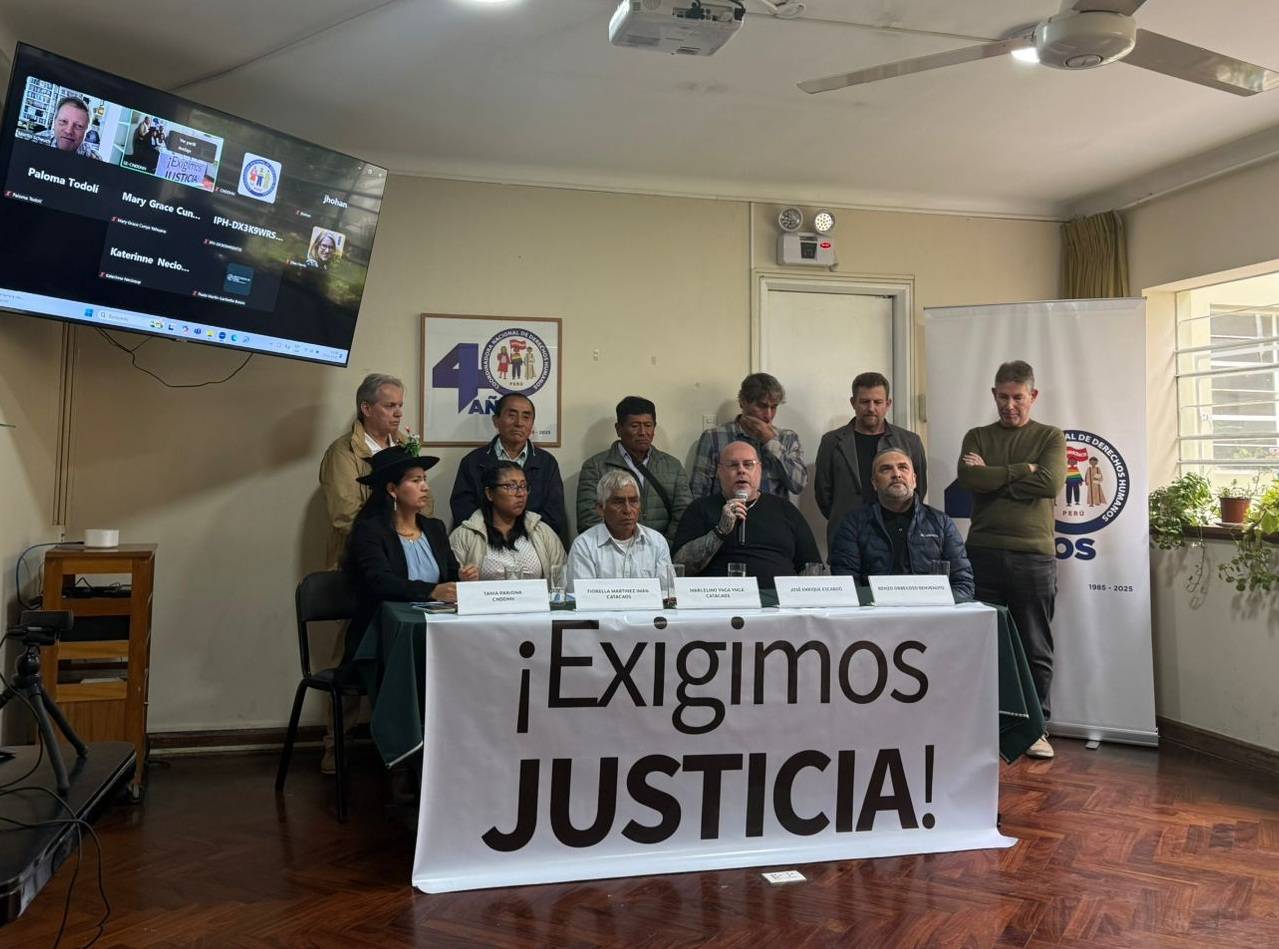The Catholic Church is a treasury of second chances. At her best, she is the source of perpetual new beginnings. Second chances are at the very heart of her way of life in the Lord Jesus.
We see this reality in small and large ways. Even on this Sunday, the Church does not disappoint.
In a small way, we see new beginnings this weekend. The Church begins passiontide, which is a sort of “second Lent.” It’s a kind of an internal wakeup call to believers to go deeper in their Lenten practices, or – second chances – to reignite a failing Lenten practice. Passiontide can be marked by veiled statues, suspended bells, or other such customs.
After the celebrations of Laetare Sunday last weekend, passiontide is a moment for believers to reboot their Lent. If they need it, it’s a time for a fresh start.
In a larger way, we see a new beginning this weekend in the Gospel Reading from Saint Luke. We are told of the woman caught in adultery.
The Lord Jesus returns from the Mount of Olives and people begin to assemble around him. He sat down and began to teach. As the Lord is teaching, some scribes and the Pharisees brought a woman who had been caught in adultery
and made her stand in the middle of the crowd.
They said to Jesus, “Teacher, this woman was caught in the very act of committing adultery. Now in the law, Moses commanded us to stone such women. So what do you say?”
It was not a sincere question. The leaders were testing the Lord, trying to collect charges against him.
In response, the Lord Jesus eventually says, “Let the one among you who is without sin be the first to throw a stone at her.”
The crowd slowly began to disperse. Then the Lord Jesus said to her, “Woman, where are they? Has no one condemned you?” She replied, “No one, sir.” Then Jesus said, “Neither do I condemn you. Go, and from now on do not sin any more.”
The Gospel account is a billboard for second chances. It cries out a message of mercy and new beginnings. It is the heart of the Church’s way of life. It is her best and most endearing quality.
Mercy has a mission. It is not licentiousness, lawlessness, or a flagrant permission to continue in sin. Mercy is given, new beginnings are given, so that we can go and sin no more.
As fallen human beings, however, we’ve become accustomed to sin. We can easily forget that we were not made for sin. We can undervalue what it robs from us.
In our theological tradition, we understand sin as a privation of being, which means it diminishes who we are. It eats away our existence and the goodness of creation. It is not human or real, but is actually anti-human and anti-reality.
Sin diminishes what exists. It degrades us and is a decay to our humanity. It makes us strangers to ourselves and the world around us. Sin steals what does not belong to it. It robs us of the richness of life and the goodness of our humanity. Sin is a spirit of darkness. It lies, deceives, and manipulates goodness, truth, and beauty. Sin promises false blessings and works to enslave us in its treachery and duplicity.
As Saint John teaches in his first letter, “Everyone who commits sin is guilty of lawlessness; sin is lawlessness.”
Sin is an existential calamity and a blight on our personal identity. When we sin, we lose a part of ourselves and become less of the person God has created us to be. Saint Paul addresses this consequence of sin and calls us to seek a “full stature” in Jesus Christ.
As we seek our full stature in Jesus Christ and labor to be purged from sin, we are challenged by Saint Paul, who in his Letter to the Galatians describes for us the sacrifice that must be made for God’s grace to work: “And those who belong to Christ Jesus have crucified the flesh with its passions and desires.”
Saint Paul continues: “May I never boast of anything except the cross of our Lord Jesus Christ, by which the world has been crucified to me, and I to the world.”
And so, the mission of mercy is ultimately one of self-donation. Second chances are given so that we can die to our sinfulness, selflessly serve others, and be the source of a second chance for someone else.














